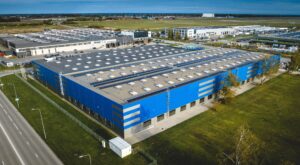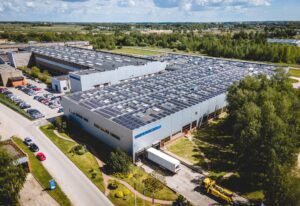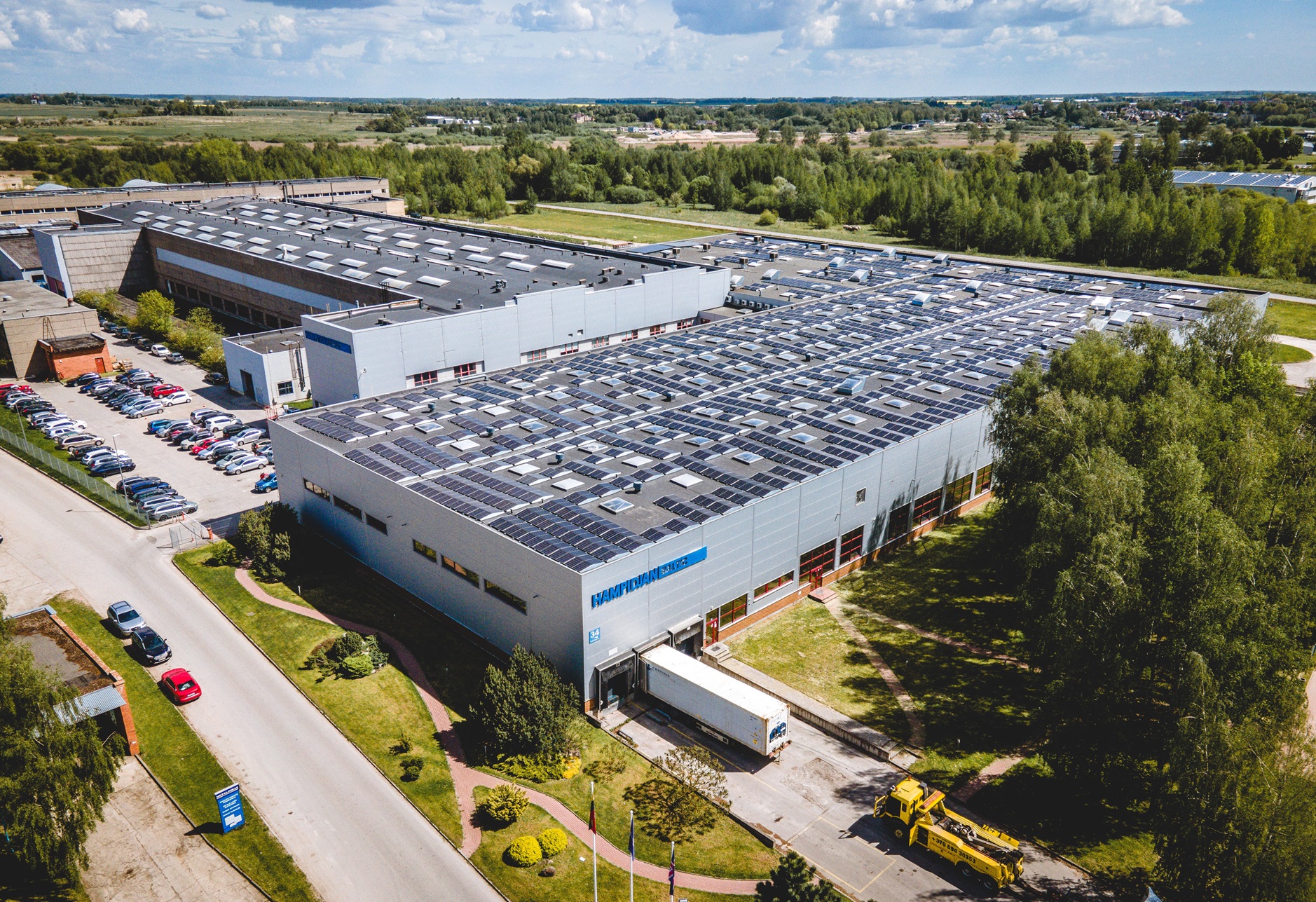Recently, solar panels were installed on the rooftops of Hampidjan Baltic and Vonin Lithuania buildings, Hampidjan’s subsidiaries in the city of Šiauliai, Lithuania. These large buildings have a combined roof area of approximately 31,500 square meters. The goal is to generate electricity for the companies’ operations, with the solar panels representing an essential step toward more sustainable operations. Šiauliai, located in central Lithuania, is one of the sunniest locations in the country, and its ancient name refers to the sun.

Vonin´s netloft in Lithuania.
Vonin Lithuania specializes in net-making, producing fishing gear and fish-farming pens. This work involves a lot of manual labor, with the only machines used being sewing machines, large pulleys, and reels to move the fishing gear and fish pens during assembly. Equipment is therefore limited, and most activities take place during the day to take advantage of natural light. The new solar panels are expected to largely meet the company’s energy needs.

Hampidjan Baltic.
On the other hand, Hampidjan Baltic is a large manufacturing company with many energy-intensive machines to produce threads, ropes, and nets. Production operates around the clock, so solar energy cannot be utilized at night; however, this new equipment is still expected to meet approximately 15% of its electricity needs and save around 20 million ISK annually.
The project is supported by the Lithuanian government, including funding from the European Union, as part of a broad EU initiative to reduce energy consumption across the continent. With this support, Hampidjan’s investment in solar energy is expected to pay off within three years.
About four years ago, Hampidjan Baltic and Vonin Lithuania switched to LED lighting with similar support. This investment has already paid for itself, leading to lower electricity bills, with the additional benefit of improved, higher-quality lighting in work areas, which is critical when handling fine threads and delicate yarns.
Additionally, the buildings’ insulation has been improved to reduce heat loss in winter and prevent overheating in summer, as Lithuania’s winters can be very cold while summers are hot.
The transition to solar power marks yet another milestone on the companies’ journey toward improved energy efficiency, increased sustainability, and a reduced carbon footprint for Hampidjan.


